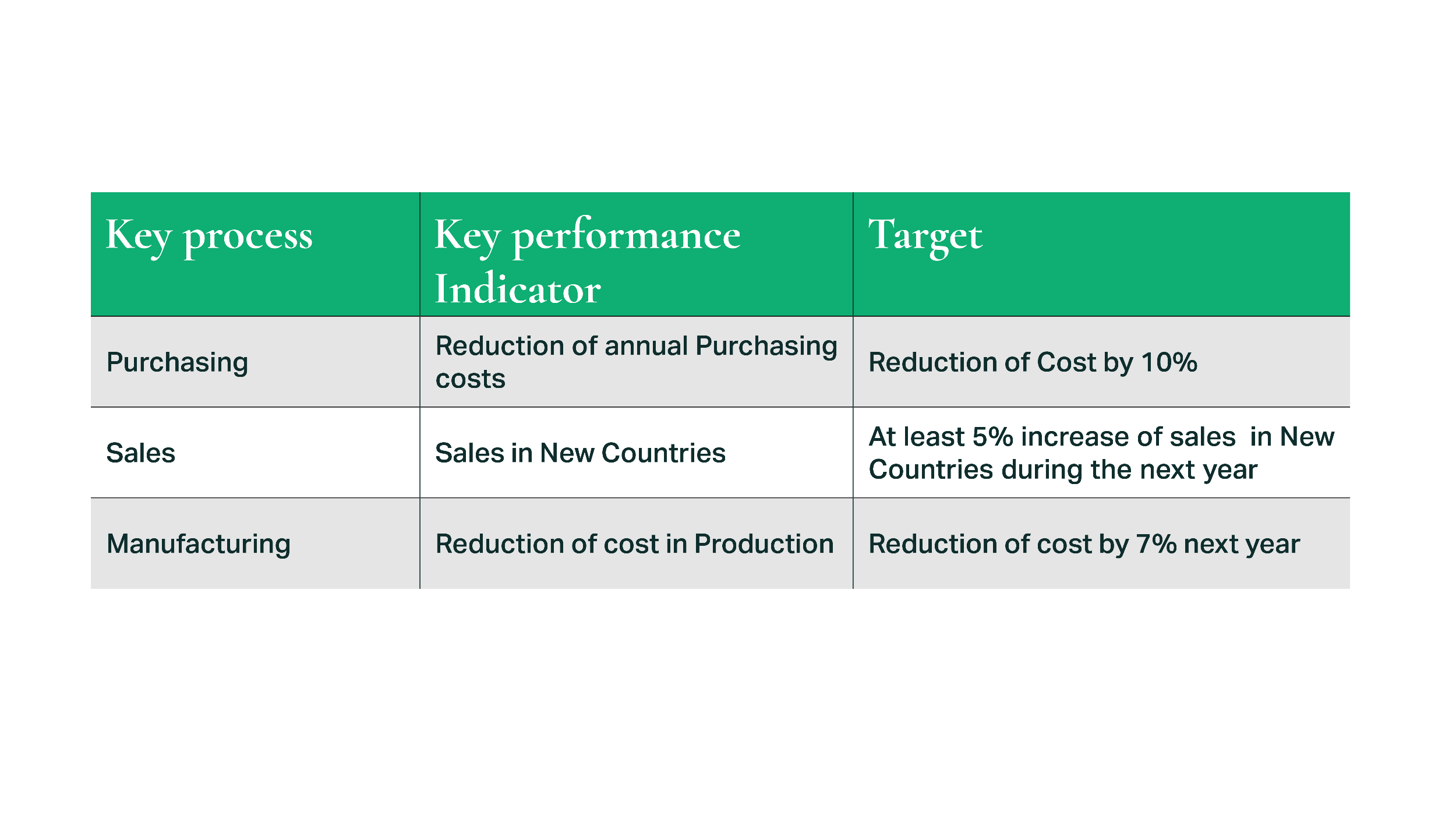KPIs are the most important and critical tool for management to evaluate the performance of the organization in the processes that are essential for its growth, transformation, competitiveness, or resilience. They should be linked to the organization’s strategic goals and objectives, and they should be measurable, achievable, relevant, and time-bound.
Mistakes to avoid when using KPIs:
- Having too many KPIs: This can lead to information overload and make it hard to focus.
- Confusing quantity with quality: Indicators differ. KPIs should align with the organization's strategic goals and objectives.
- Misaligned KPIs: Strategic goals should drive KPIs. Tracking easy-to-track activities doesn't make them meaningful.
- Isolating KPIs: KPIs should illustrate the organization's performance holistically.
- Focusing on the wrong things: KPIs should measure meaningful progress.
- Data overload: Avoid overwhelming leaders with data. Provide concise, actionable insights tailored to their needs.
A real story about KPIs:
Picture this: a scene unfolding in an EU member country, where a diligent Quality Manager proudly presents stacks of folders brimming with data, claiming them to be the organization’s KPIs. However, upon closer examination, it becomes apparent that amidst this ocean of information lies a fundamental misunderstanding. These folders do not house KPIs but rather a miscellany of data points devoid of strategic relevance. A similar scenario unfolds in the Middle East, where an organization boasts a staggering 1,800 KPIs, each seemingly vying for significance. These anecdotes underscore a prevalent issue: the conflation of data abundance with meaningful KPIs.
So, which are KPIs?
KPI’s are the indicators that are linked to the Key Processes of the organization as in the example below.
 Example of Secondary Indicators (Non KPIs) :
Example of Secondary Indicators (Non KPIs) :
KPIs serve as the guiding principles within a business's strategic framework, directing every move towards success. Yet, if they're not handled correctly, they can lead to confusion and inefficiency. By understanding which metrics truly matter and which are just distractions, businesses can harness the power of KPIs to make smarter decisions and drive growth.
Remember: The path to KPI mastery lies not in quantity but in quality, not in complexity but in clarity, and purpose over proliferation.







